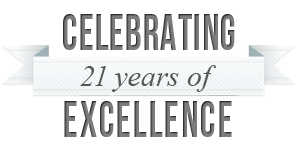Since entering the workforce in 1975, I have served in two different industries and on a variety of boards and committees. Over the last 37 years, I have had the pleasure of associating with an astonishing number of talented women, who clearly had the smarts and the leadership ability to rise in a variety of organizations. Yet, in my experience, a tangible gap persists between the talent that women bring to the table and the levels of workplace advancement they are able to achieve. Today, according to 2011 U.S. Census data, women outnumber men in college classrooms and hold the majority of advanced degrees in this country. Yet women are woefully underrepresented in leadership positions in U.S. companies.
What is holding women back? I wholeheartedly believe that today’s leaders want to promote women to leadership positions, but I sometimes think they lack a model for success. Our long-held cultural beliefs, perceptions, and memories are slow to change.
I believe that another factor may be at work. Often, managers, consciously or unconsciously, take women out of the running for high-profile projects. But as we all know, these high-value projects are exactly the assignments that enable leaders to develop the credibility and skills they need to rise within an organization.
I also believe that the lack of tangible sponsorship of women is a limiting factor. When women don’t have access to informal networks and the sponsorship of powerful leaders in an organization, they are handicapped as they seek to climb the ladder.
Obstacles for African American women are even more daunting. A study by the Executive Leadership Council found that African American women face serious challenges in their climb up the corporate ladder. The top three challenges faced by African American women are weaker or less strategic networks; inaccurate perceptions of capabilities; and work/life balance demands. In my journey through corporate America, I have witnessed and experienced variations of all of these obstacles.
Am I disheartened by these trends? I am not. I believe that change is underway. As leaders at whatever level in our companies, we must model the change we desire. We can assign or recommend women to high-risk, high-reward assignments. Women must actively take charge of their own careers by establishing goals and the plans needed to reach them. We, ourselves, should use and become mentors and sponsors. Will the implementation of these changes have an impact? Yes, they will. Research published by the Harvard Business Review indicates that the biggest source of unrealized leadership potential is the women in any organization. I believe it. And, I also believe that by working together, we can find ways to tap this valuable pool of talent.







